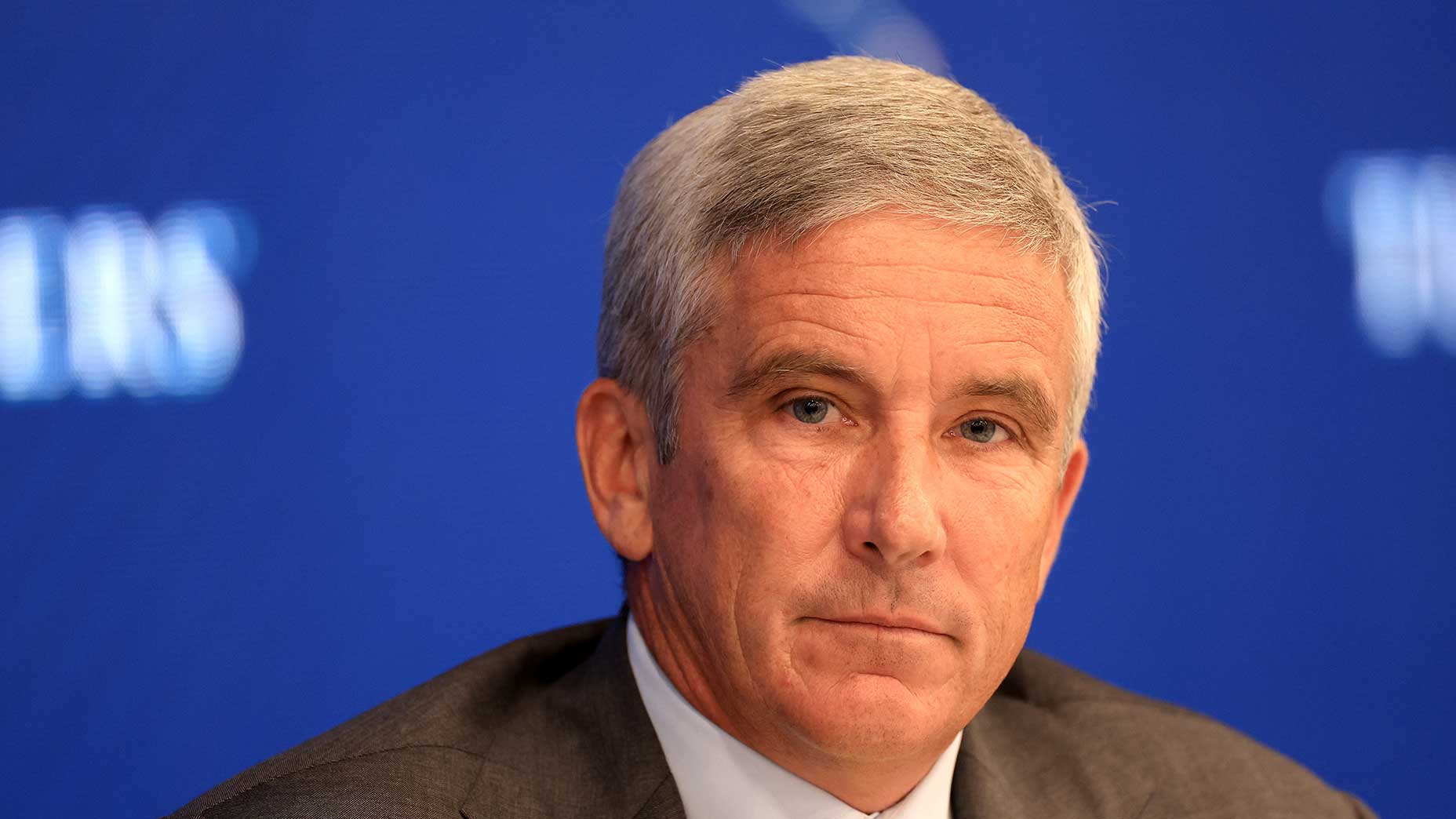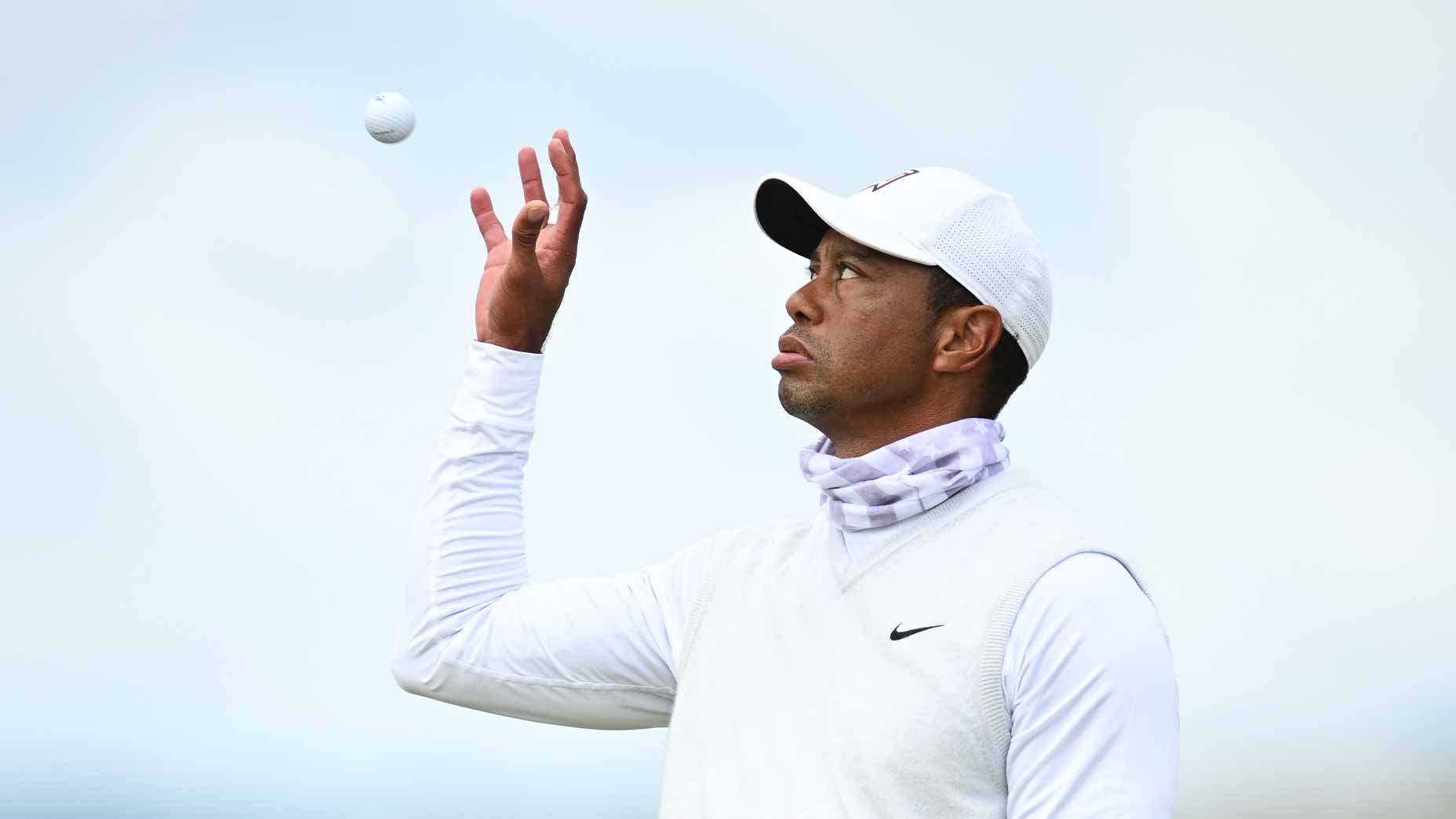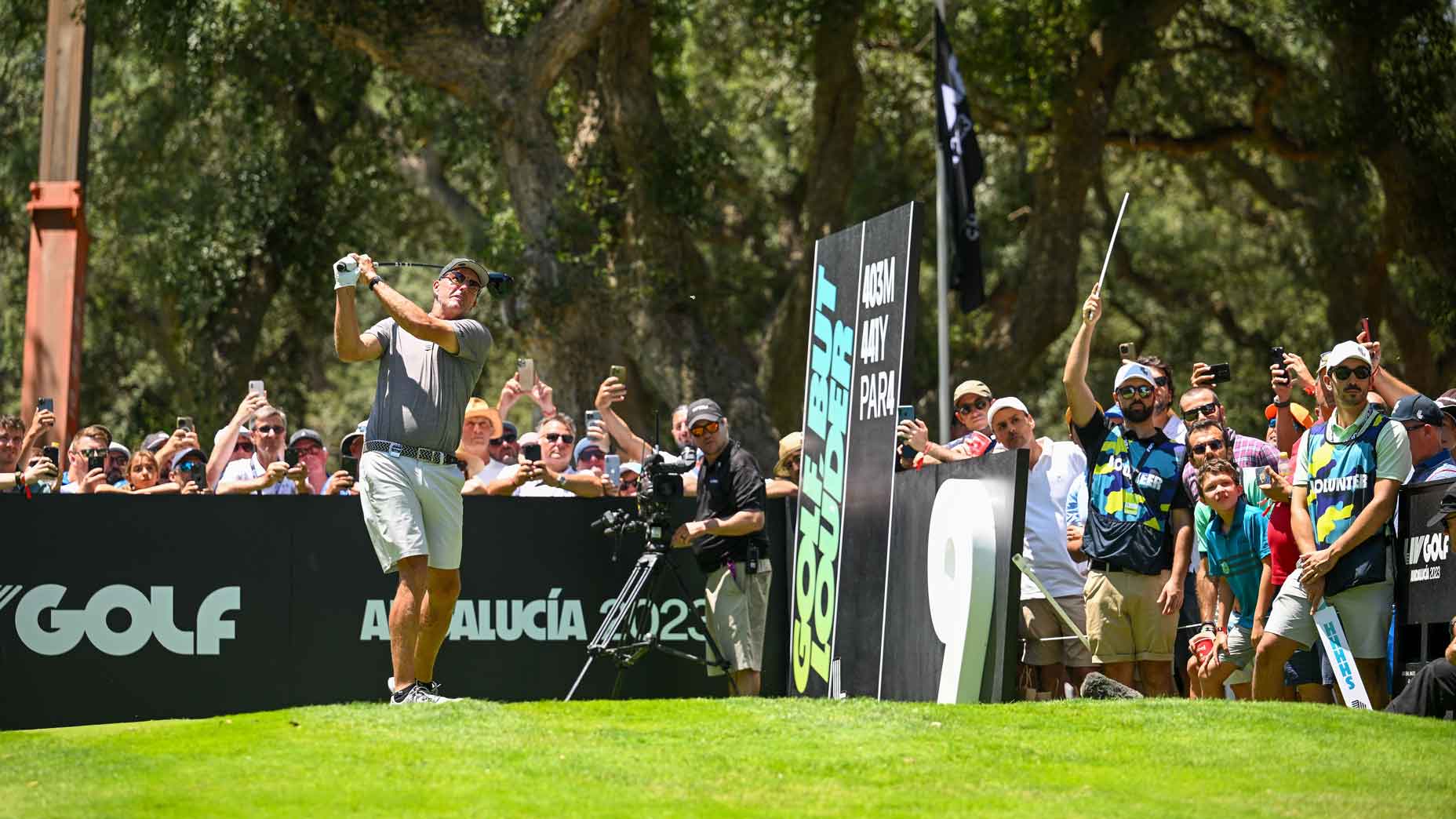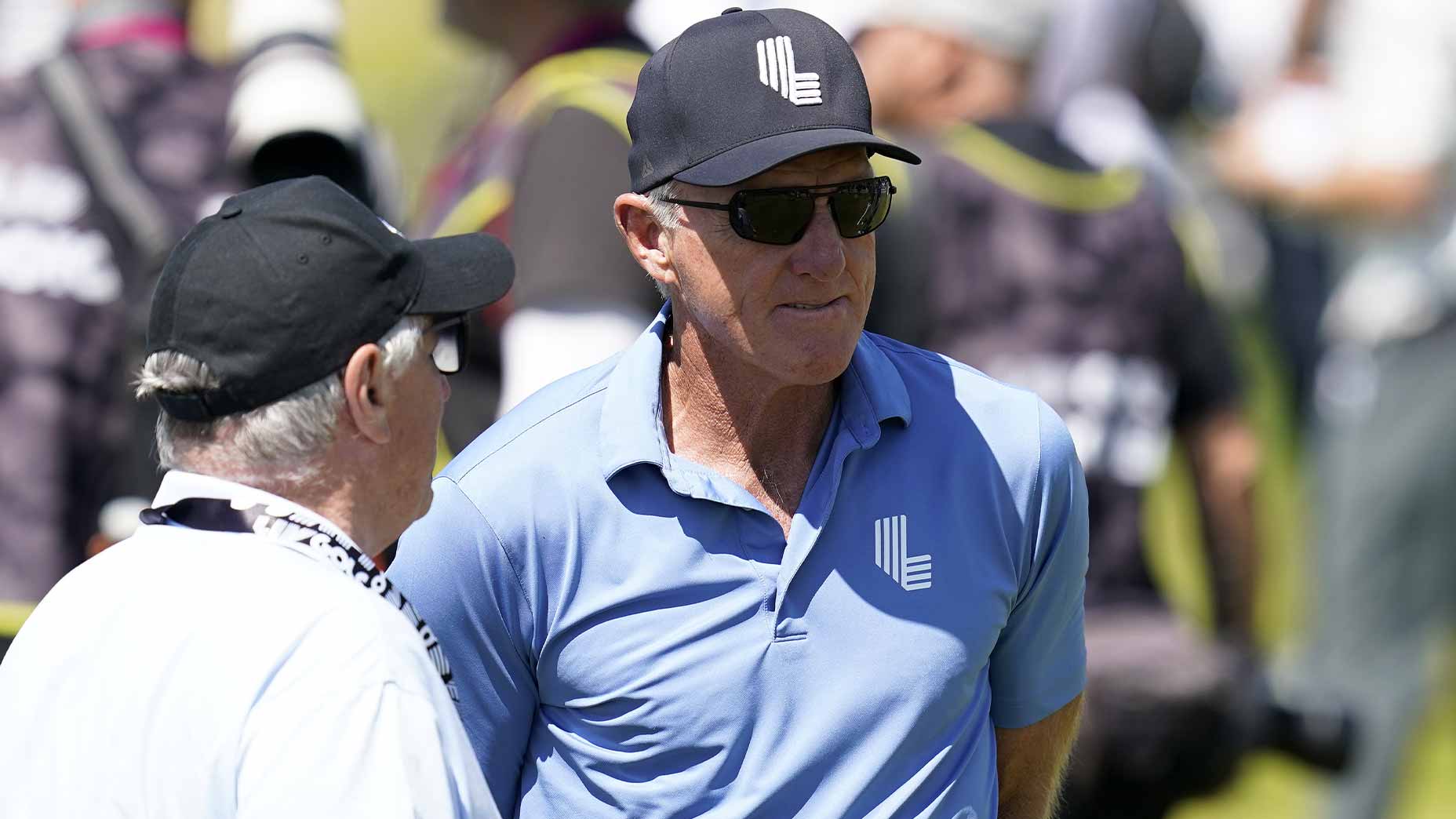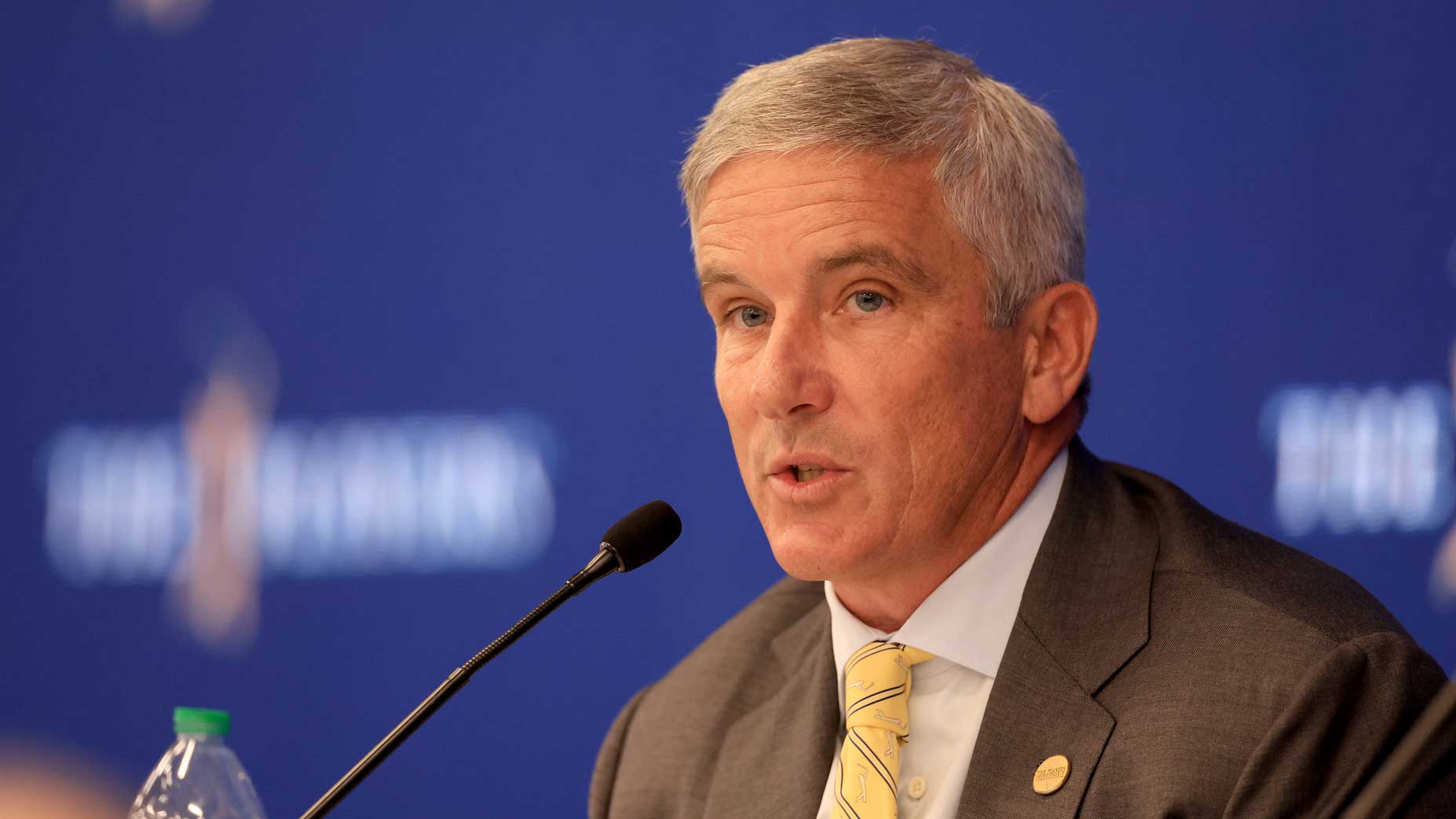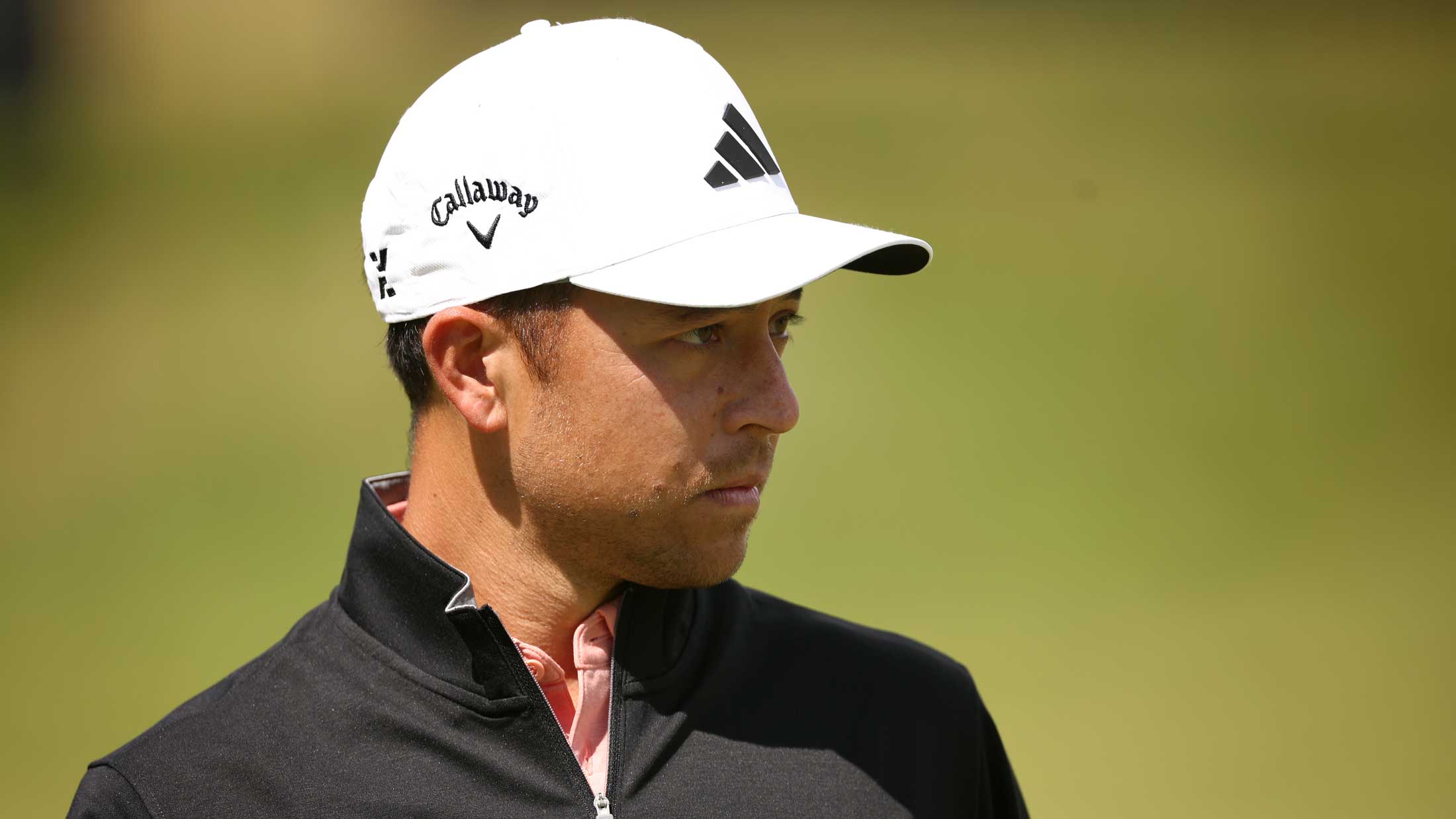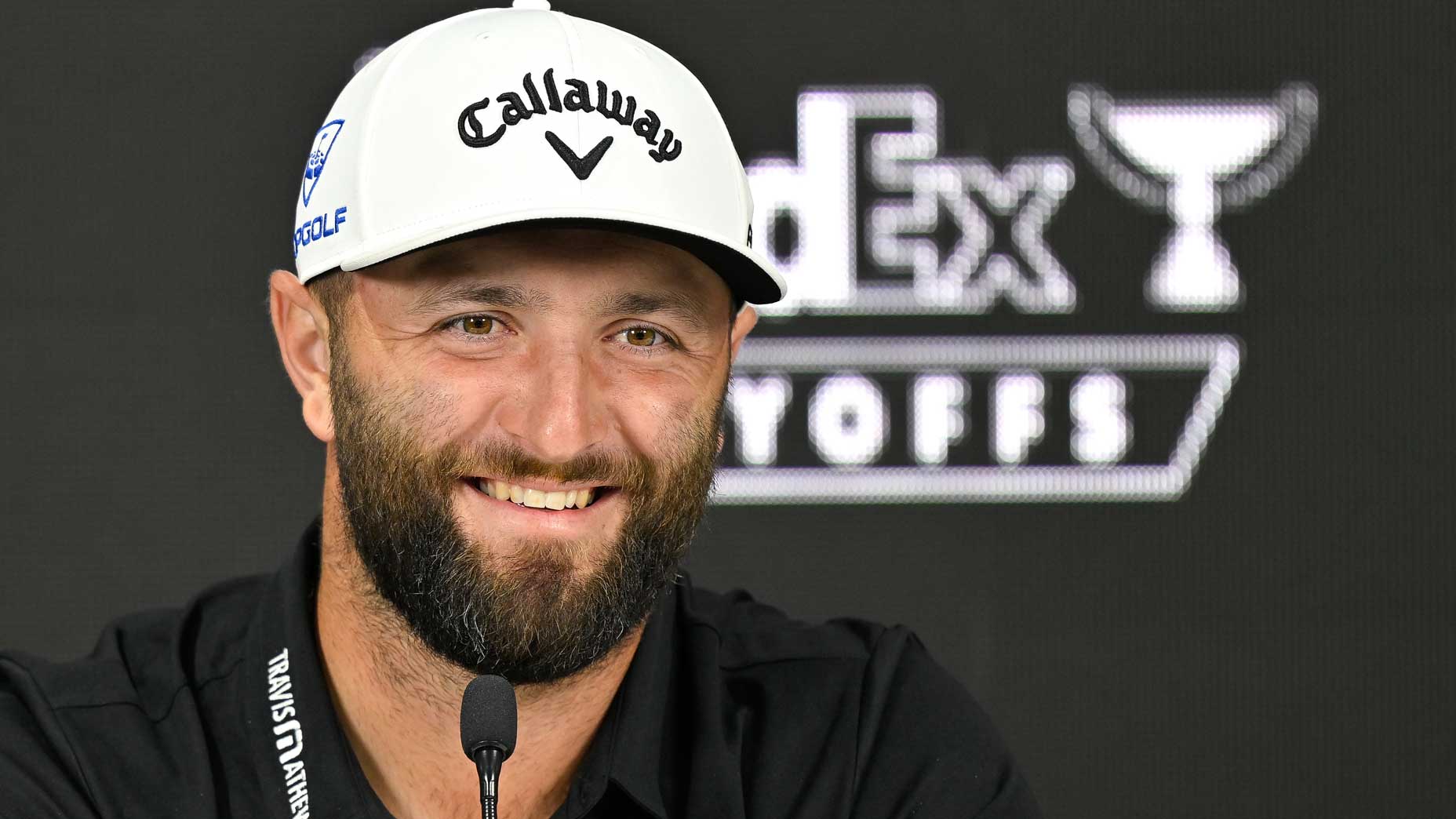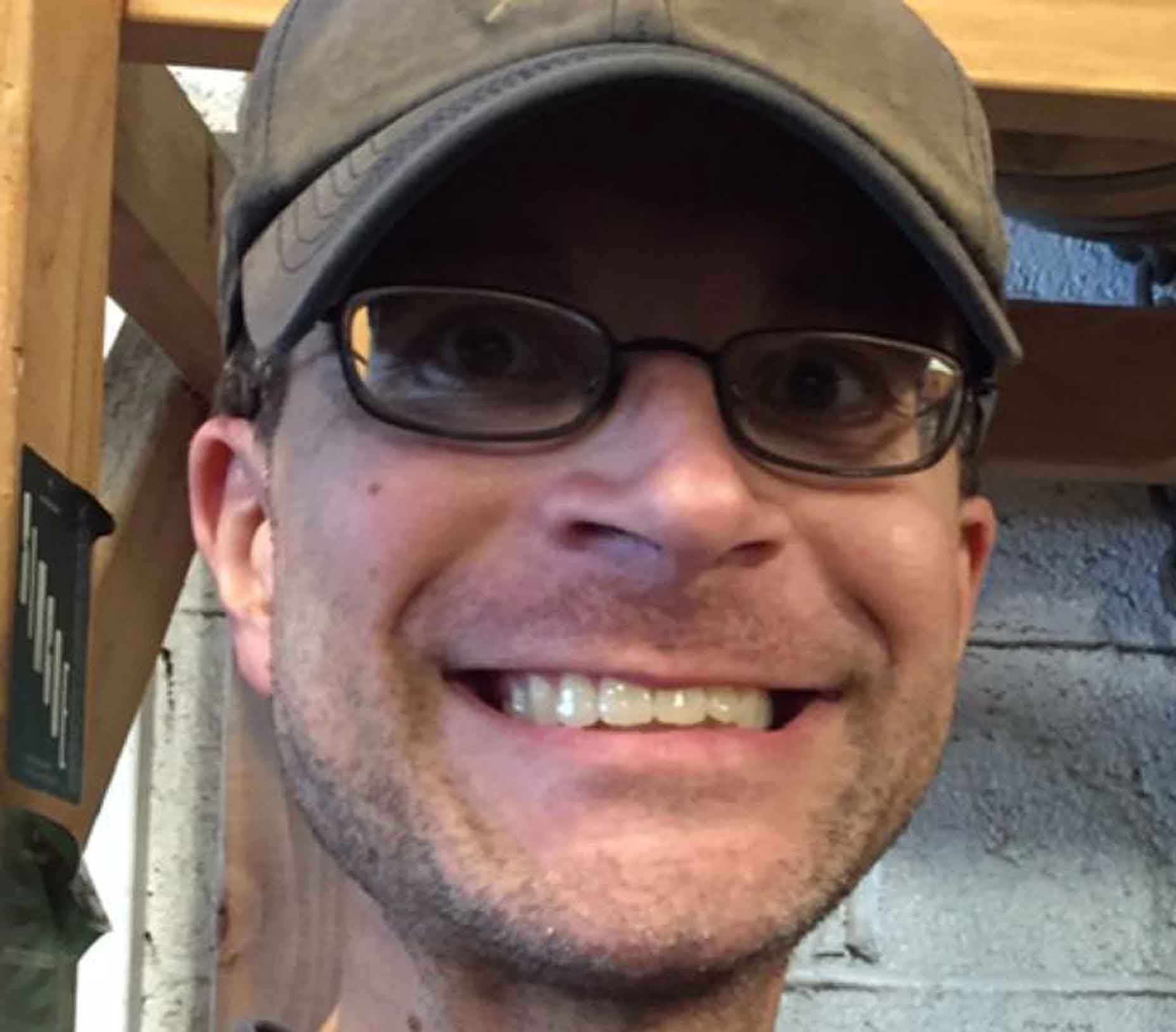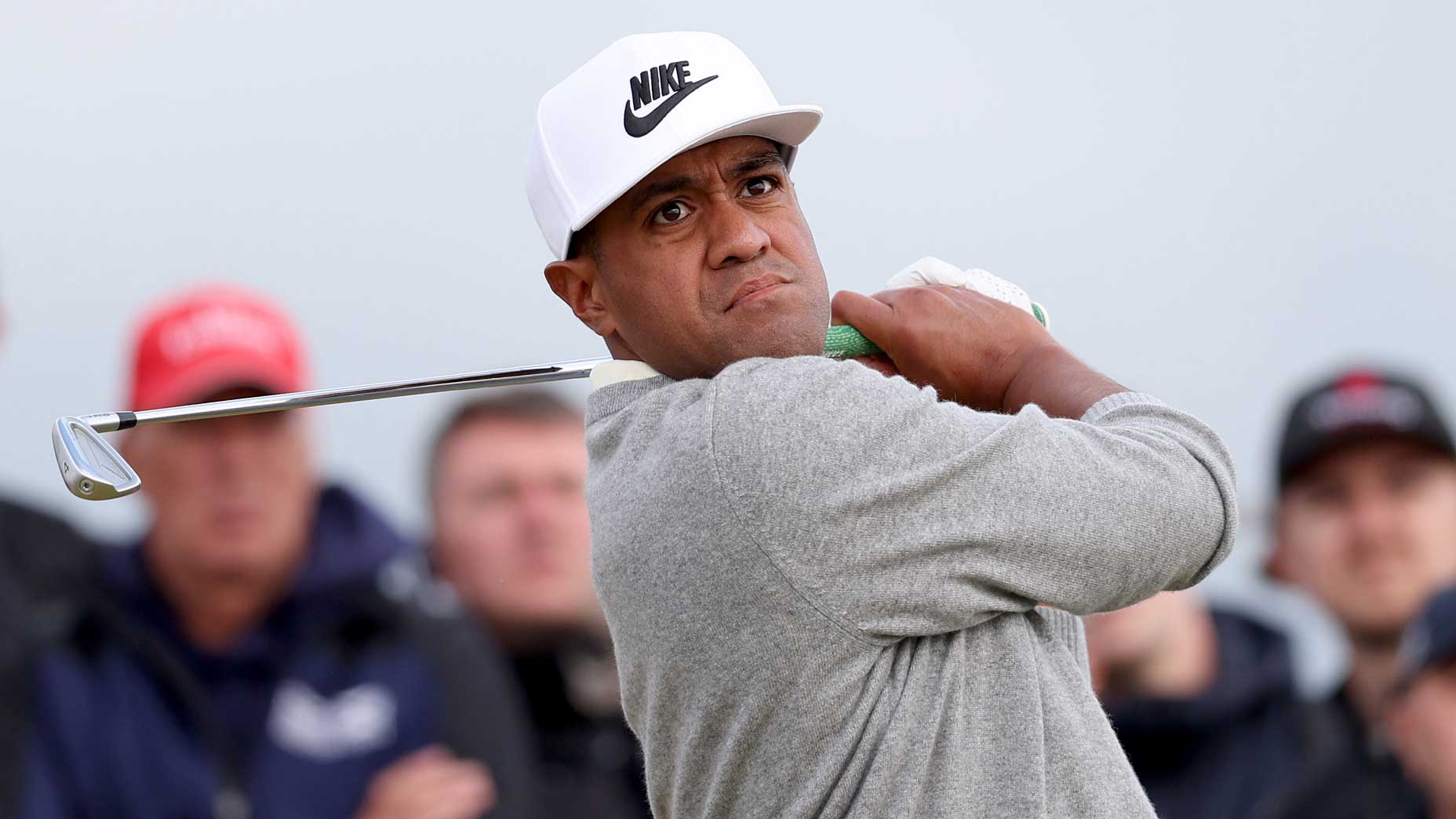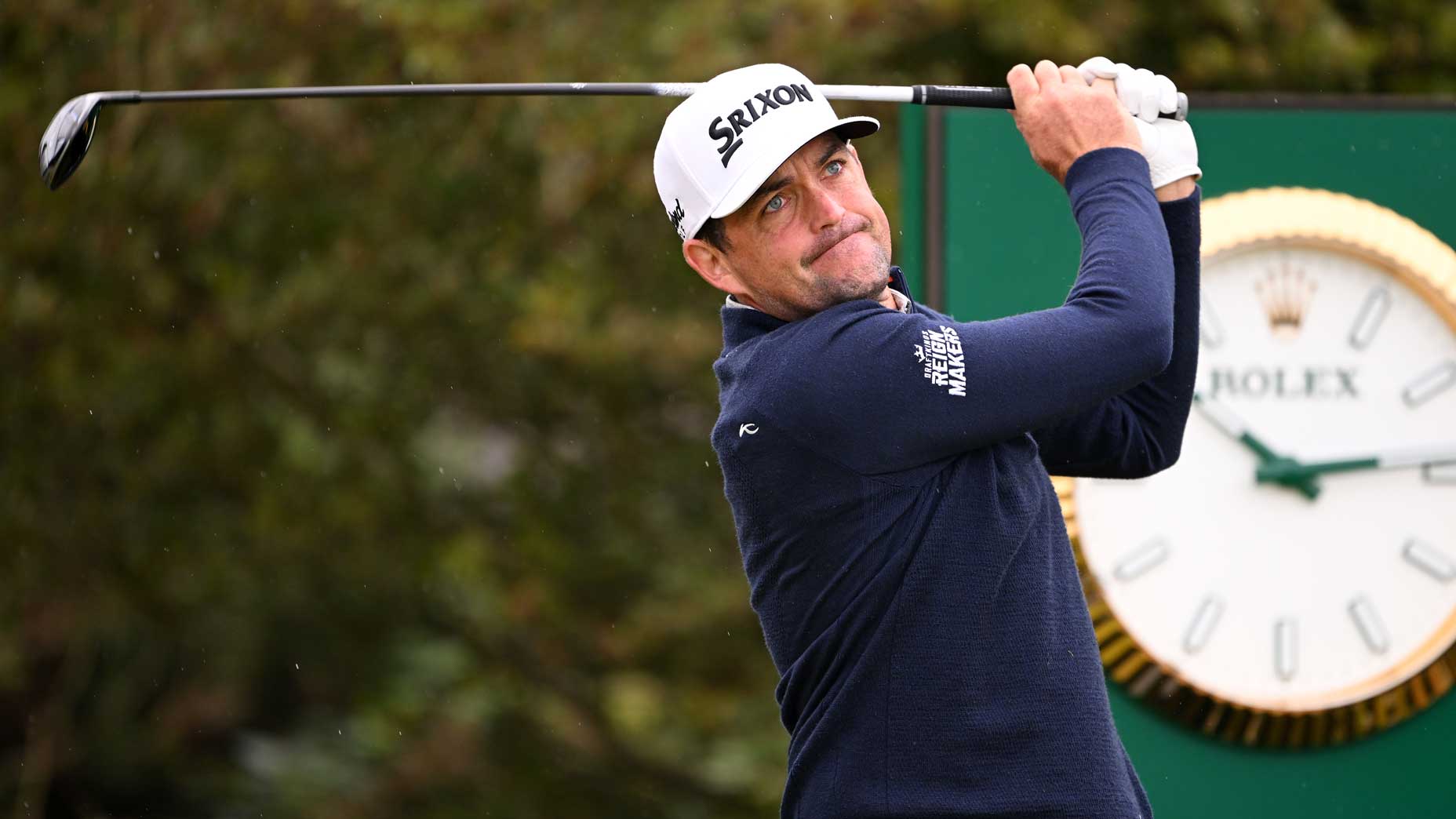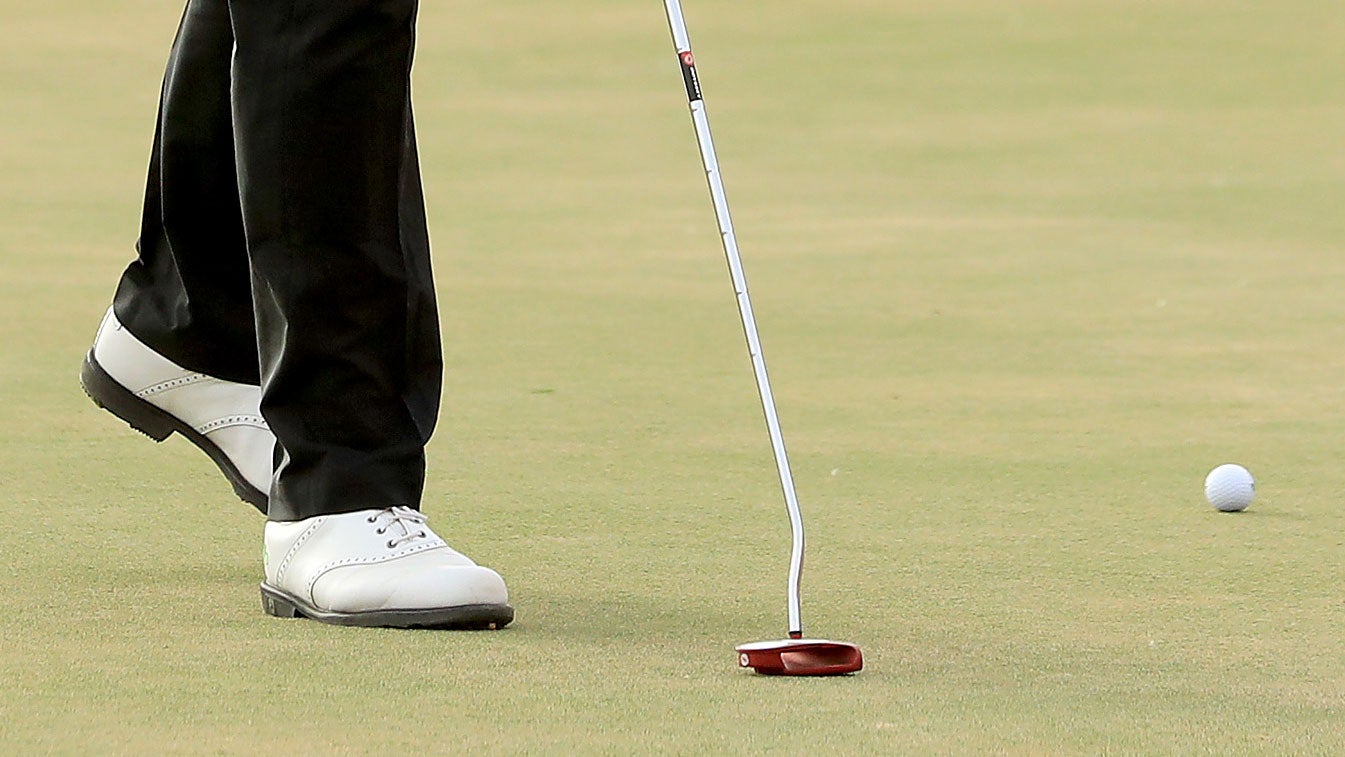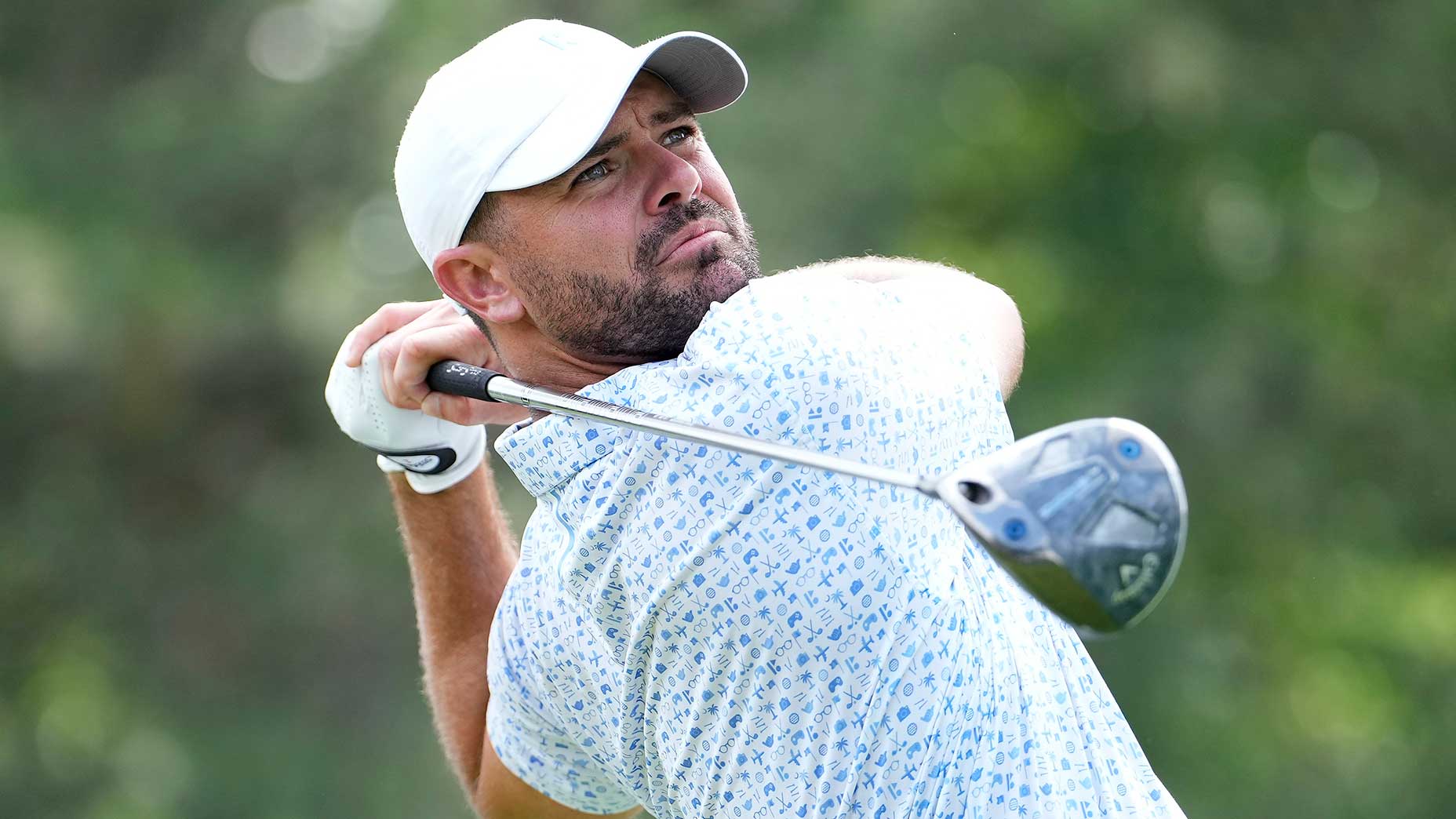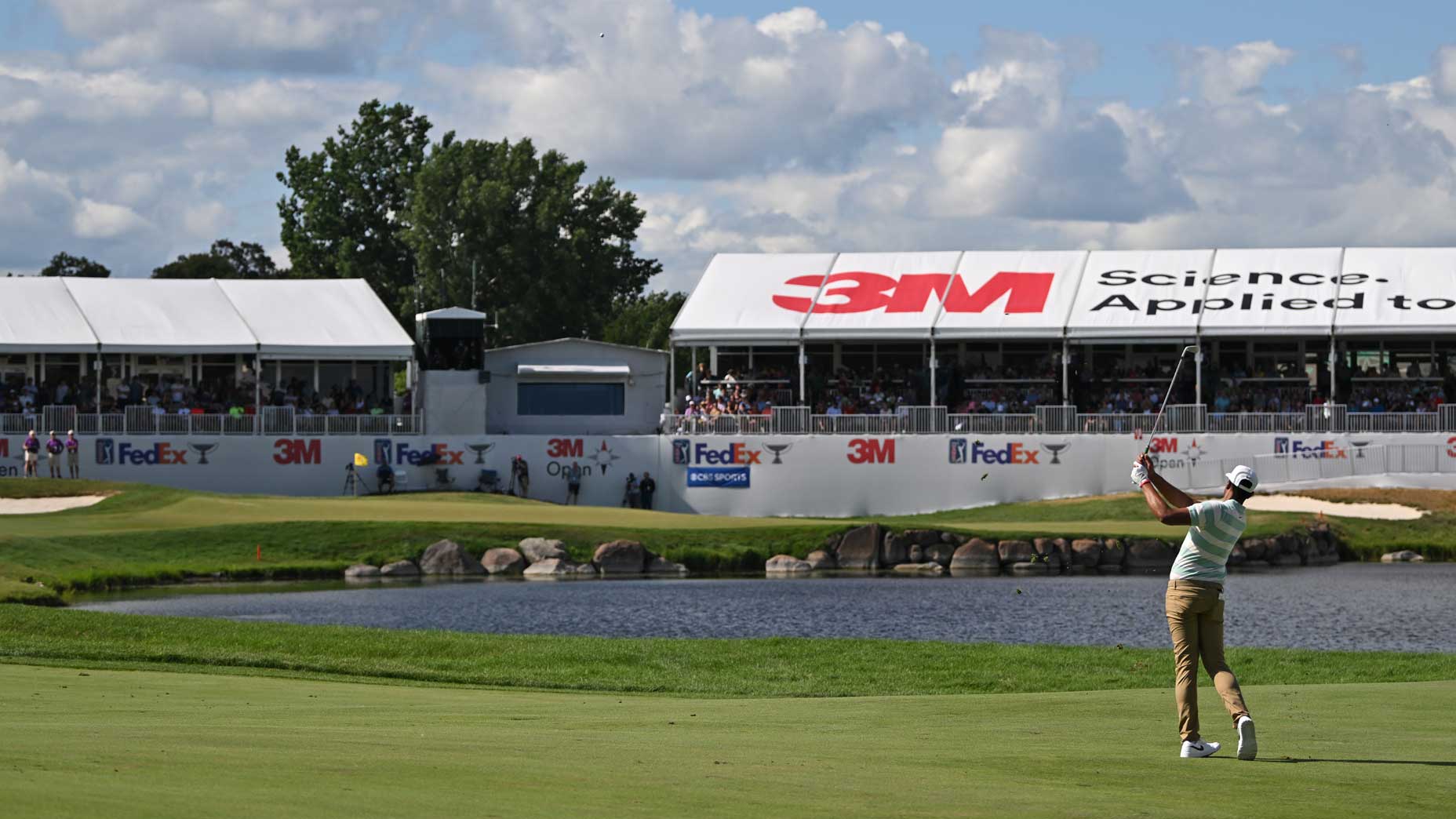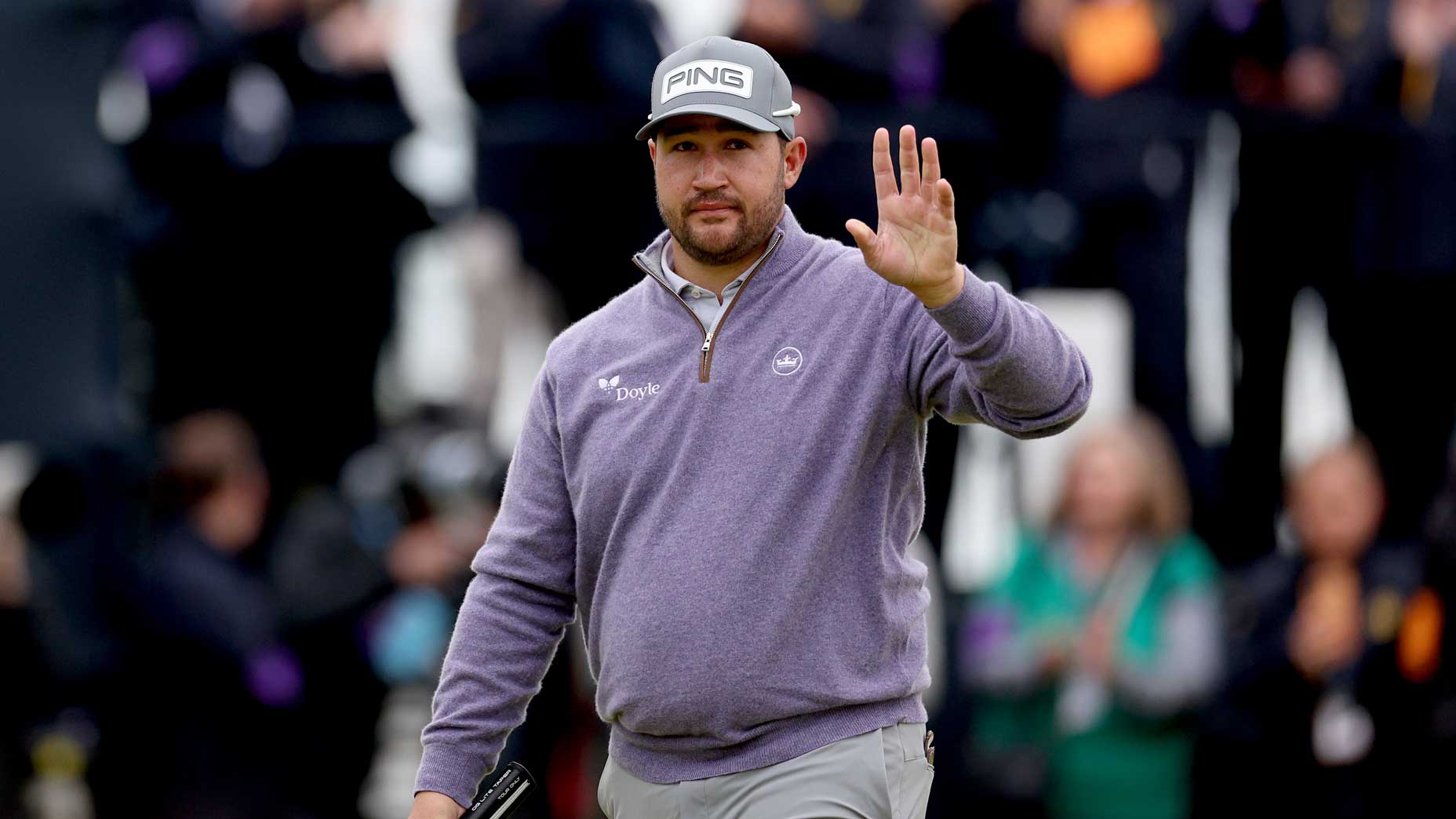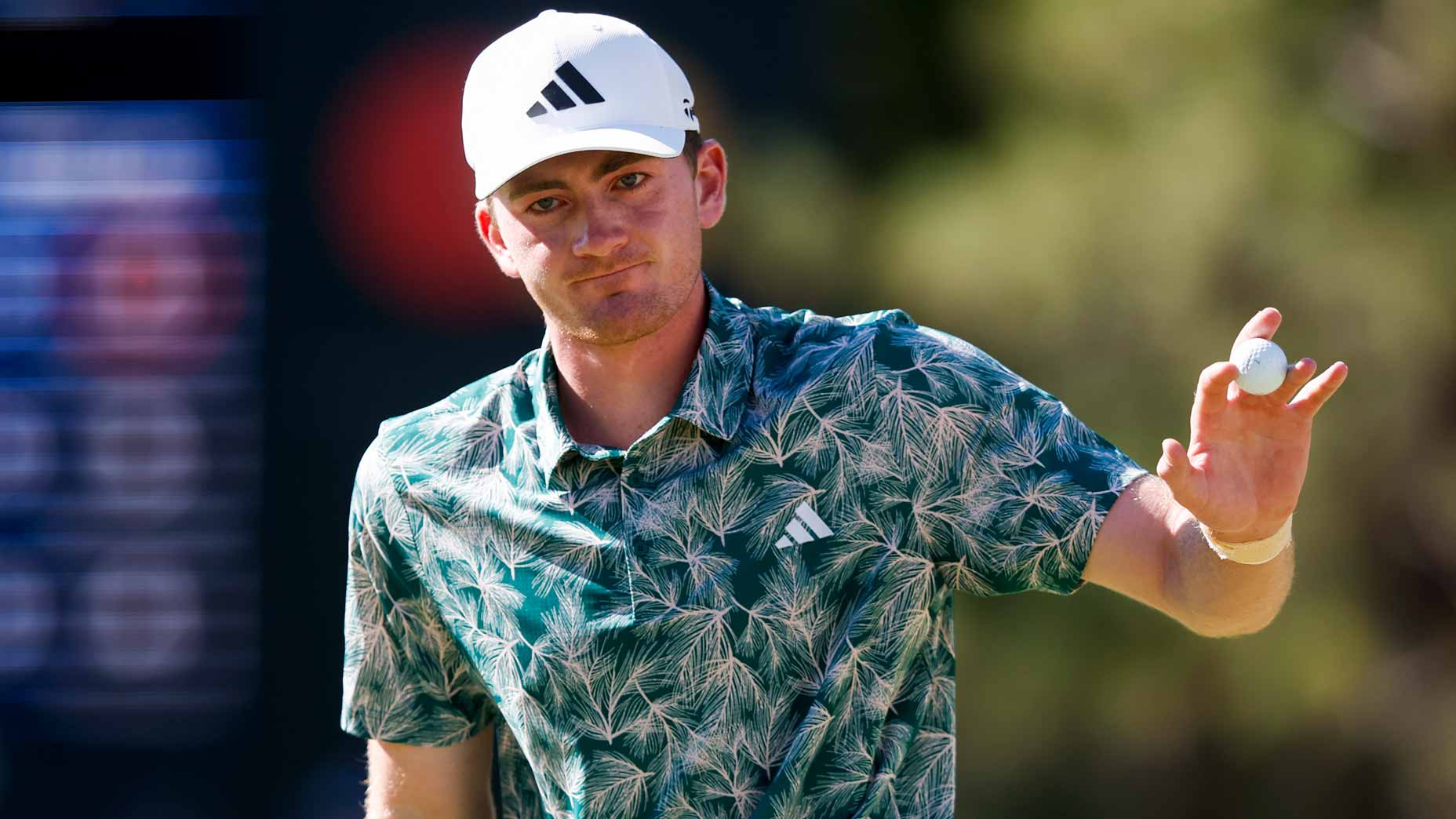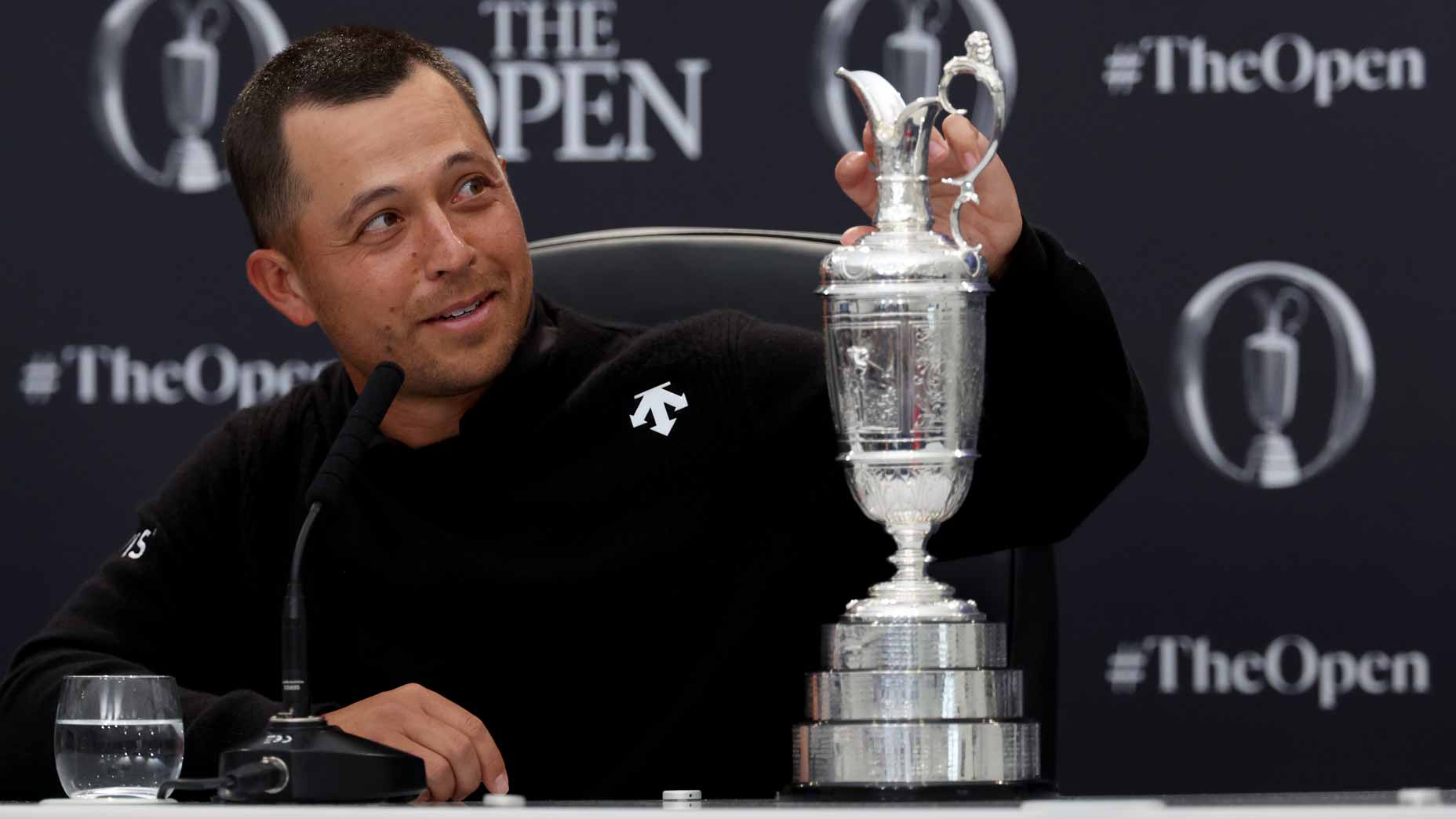Saudi deal, health and regret: 9 takeaways from Jay Monahan’s private media talk
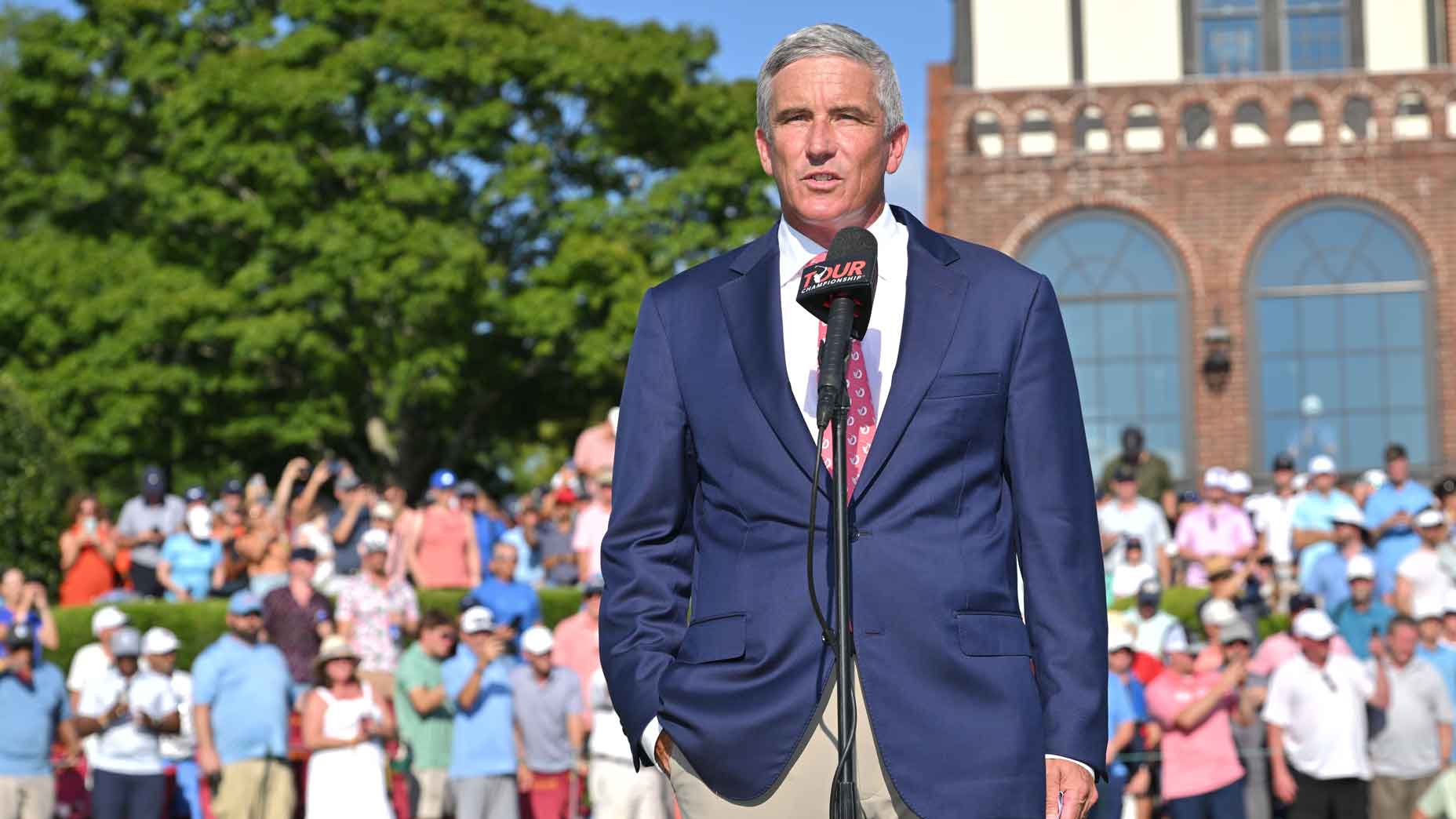
Jay Monahan last year at the Tour Championship.
Getty Images
MEMPHIS, Tenn. — Jay Monahan says he’s healthy, though he had thought of not returning to the PGA Tour.
The Tour’s agreement with the Saudi Arabia Public Investment Fund remains in negotiation, he also says, but the Tour is “sustainable” should it fall through.
And his biggest regret over the past few months involves the rollout of the deal.
Specifically the day.
On Wednesday morning, ahead of the start of this week’s FedEx St. Jude Championship, Monahan privately met with a group of about 15 reporters inside the clubhouse of TPC Southwind, the Tour commissioner’s first face-to-face comments since the announcement of the Saudi deal on June 6, a time period that includes his leave of absence a week later due to a previously undisclosed health concern.
Here then are nine takeaways from the hour-long session, which included Tyler Dennis, the Tour’s executive vice president, and a Tour communications official.
1. The specifics of the deal remain ongoing — and largely unclear
Since the deal’s announcement — where the Tour and PIF entered into an arrangement to create a new, for-profit enterprise and end pending litigation between the Tour and PIF-funded LIV Golf — there have been vague details on what that may actually look like. Notably, that lack of clarity has also led to player unease. (More on that in a minute.)
Wednesday, though, Monahan provided little new insight, saying at one point: “Ultimately what we did is we had an agreement to explore an agreement. That process is well underway.”
Later, he added: “I think it’s the right move, and obviously being in a position with the establishment of NewCo [the for-profit enterprise] provides us with the opportunity to have productive conversations and to move PIF into the position where they become a minority investor in the PGA Tour, and … we have economic operational board control, and the strength of the PGA Tour model stays intact under our governance, and we’re moving forward in a way that unifies our sport.
“Ultimately, when we’re sitting down at some point at the end of this year and these conversations have been completed, I fully expect that that’s where we’ll be. But I understand that we’re a long way between where we are today and that point, but I’m determined and inspired to get there on behalf and for our players and for our fans.”
Yes, that’s vague. So we wait. Will things get rushed? Is there a hang-up somewhere? Could the status quo remain? Lots remains unknown.
Notably, there have been two recent announcements that have offered some look into the potential framework and how it will be managed. Two weeks ago, in a letter to players, Monahan said the Tour was working to present a “Player Benefit Program” believed to be aimed at repaying players for not defecting to LIV, and that the Tour has appointed a “task force” aimed at “developing potential pathways back to the PGA Tour for LIV players who wish to reapply in the future.”
On Wednesday, when asked about LIV players potentially returning, Dennis essentially told the reporter to re-read that note:
“We’re not far enough along to discuss it. I would just say as you probably read in our recent note to the membership, we formed a group, internal working group, to study that carefully, and we’ve been very clear as is shown in the framework agreement that we’re going to follow our tournament regulations, but thinking about that, thinking about how, as I said, we collaboratively work together on the other aspects of the agreement, that’s a key thing.
“There’s a range of opinions across the membership, and we’re really trying to take account of all that, think about it, but ultimately, the principle that we have clearly articulated to everyone is that we’re going to follow our tournament regulations.”
The second announcement came a week ago, in response to concerns via a letter signed by 41 players, where the Tour said players and Monahan will work together to amend the policy board’s governing documents so that no major decision can be made without the prior involvement and approval of the board’s player directors. (The deal had been negotiated by just Monahan, two Tour officials and Yasir Al-Rumayyan, the PIF governor.) Colin Neville, the player directors’ special advisor, will also have full access to the framework agreement, and player directors “will have full transparency and the authority to approve — or to decline to approve — any potential changes to the Tour as part of the framework agreement discussions.”
That memo also included the announcement of 15-time major winner Tiger Woods to the Tour’s policy board, a move that Monahan said he openly welcomed.
“Because he’s essentially been, in a certain way, in that role behind the scenes. I think it’s a tremendous statement, and it gives our players great confidence to know that he’s in that spot.
“It’s a question I was going to ask of him, and for him to step up that way I think was tremendous and is tremendous.
“Tiger Woods doesn’t do anything lightly, and so he’s going to be very involved.”
Wednesday also offered this:
The name of the new, for-profit enterprise, which had been called just NewCo in documents?
PGA Tour Enterprises.
2. The PGA Tour can survive without the deal
Of course, the deal could fall through. Could it be voted down by the player directors? Could it run into legal concern? Could it run into issues with the government? (Two Tour officials sat before Congress last month.) Could the PIF have second thoughts? All are, of course, possibilities.
Which led to this exchange on Wednesday, where, in short, Monahan said that the Tour could live without the deal.
Is there a chance with the deadline that there is no agreement, and if so, what would be the path forward?
“Again, for us to reach an agreement … we’ve got to have approval and buy‑in from our board.
“We’re hopeful that we’re going to reach an agreement, but ultimately these conversations — we’re going to get to a place where we feel like we have something that we recommend, and if we feel like we’re in that position, then I think you can assume that you think it’s going to get done.
“If we’re not successful, I guess we’ll cross that bridge when we get there. At this point in time, we’ve entered into the framework agreement to, in good faith, try and complete these discussions and complete the agreement.”
Is there a contingency plan? How imperative is it that you actually strike a deal? Is the Tour going to be sustainable if you don’t figure something out with the PIF?
“Yeah, the Tour will be sustainable. But again, we have identified a framework to a future that has the PIF as a minority investor in the PGA Tour where we have the proper safeguards in place to protect our model from a governance standpoint and from a control standpoint. There are a lot of conversations that led to the framework. Admittedly, there’s a lot more conversations that need to happen to complete the definitive.
“You always — the expectation is that we’ll complete an agreement, but there are always contingencies.”
3. Why did the PGA Tour come to the table when they did?
Of course, if the Tour is sustainable, that raises another question:
Why come to the table at all? Or put another way: Why take all of this on?
To this, Monahan spoke only on a surface level.
“On the PIF discussions, as you’ve heard us talk about on a number of instances, we were obviously in a conflict, and that conflict posed a long‑term existential risk, and the PGA Tour was and is stronger than we’ve ever been. We wanted to wait until the absolute right time to initiate a conversation, a time when we were in a maximum strength position.
“That’s what we did.”
4. A decision on LIV Golf remains undecided
What of LIV Golf? Does the one-plus-year-old league stick around? Is there a scenario where both series play next year and beyond?
On Wednesday, Monahan didn’t say either way. It was all still being discussed, he said.
Can you shed any more light on the future of LIV?
“I can’t. As I said earlier, now that we’re in these discussions, they’re discussions that — happy to answer all those questions when they’re completed, but not going to talk about personnel or any of the specifics because we’re not at that stage yet.”
Can you see the LIV Golf league and the PGA Tour coexisting?
“Can I see — well, what I can see is what’s in the framework agreement, which is that we’ve got a commitment to conduct an empirical analysis of LIV. Again, that’s a part of our discussions now. That’s part of what will be captured in a definitive agreement.
“Given that we’re talking to them, I’m not in a position to answer that question, but ultimately that’s a question that needs to be answered.”
Does that give some hope to the team-golf series, which plays this weekend at Trump Bedminster in New Jersey? Perhaps. Does the development of one of the aforementioned new protocols — to allow for LIV golfers to return to the Tour — mean that LIV is on life support? Perhaps. Of course, if you ask Phil Mickelson, no LIV players want to return to the Tour anyway, so there’s that.
5. What does the PIF involvement look like — and what is the potential end game?
Let’s set this up. You may have been thinking it yourself, if you’ve been following along.
The Al-Rumayyan-led PIF funded LIV. It funded its players and its staff. LIV grew. It grew a format and a schedule and a TV deal — all the way down to T-shirts and caps. It competed for prestige.
And now the Al-Rumayyan-led PIF is all of a sudden on Team PGA Tour, regardless of whether LIV sticks around? At the least, it’s a leap. On Wednesday, there was this exchange:
What’s your sense of what Yasir wants out of this? Do you get the sense he wants to be collaborative and wants to be part of the general golf landscape, or are you getting any sense at all that he does not want to be disruptive, like it’s sort of been the past year?
“I think the framework agreement speaks for what he wants. I’m not going to put words in anybody else’s mouth, but we obviously spent a lot of time with him getting to that, and that’s something that the PGA Tour, the DP World Tour and PIF have agreed to is the framework for these discussions, and I think he wants to see a successful outcome, and we want to see that with him.”
6. What happened to Andy Pazder?
The resignation of Andy Pazder, the Tour’s chief tournaments and competitions officer, on Tuesday was curious.
As was Monahan’s short reaction to the abrupt departure of a 30-plus-year Tour employee.
“I don’t have anything to add beyond the statement that was issued yesterday, other than I had the opportunity to thank Andy … for 34 years of contributions to the PGA Tour, which were significant and meaningful.”
7. What happened during Monahan’s medical leave?
Monahan’s departure in mid-June due to a then-undisclosed medical concern was sudden and mysterious, which was not unlike the Saudi deal he had just hatched. The Tour’s statement at the time was brief. Speculation came. Was it because of the deal? Something else? In announcing via a memo his return, he noted how the past two years have been “grueling for us all,” presumably a nod to the Tour’s fight with LIV.
Health, of course, is a private matter, but Monahan is a public figure. On Wednesday, he was asked what happened.
“I think the reality for me was that I was dealing with anxiety, which created physical and mental health issues and challenges for me. I realized that, as I said earlier, I needed to step away and to deal with that and understand how to develop the skills to deal with that going forward. I knew that we have a great team in place, and I knew that I had — ultimately, you can’t wait when you’re in a situation like that, and I needed to deal with it, and I needed to deal with it for my family, as I said, for myself, and ultimately to be as strong as I can possibly be for the players.
“That was a very hard thing for me, and for the reasons I said earlier, but I’m really proud of the fact and I’m grateful for the fact that I was able to do that, and for me, it’s very personal, and I think it is for anybody, and in being personal, I recognize that people deal with far worse problems and challenges in their lives, and I realize that — I’m not looking for — all I was trying to do was get myself back to a place where I was ready to do exactly what I’m doing right now. But I’m proud of myself for doing that.”
Did the pressure of executing such a big deal and the strong public reaction to it contribute to that anxiety?
“Yes, there’s no question about it. But it’s not like June 6th or June 7th or June 8th. I think for people that deal with anxiety, it builds over time, and it affects you — it affects everybody differently, and it had been affecting me.
“It was particularly acute that day, but again, I realized the position I was in and said this is the right time to go take care of myself.”
You make it sound like that when you stepped away that there was some fear or maybe realization that you might not ever come back; is that true? Is that accurate, do you think?
“I was determined to come back. But I had to get myself to a better place. I had never been through something like that before.
“Not having been through it before, I felt like I could get there, and I did. But I think — it’s a fair question.”
8. How did Monahan feel when he heard that players felt he betrayed them?
The question drew maybe Wednesday’s longest pause.
Following the deal, players were angry. The proposal would now not only partner them with the group they fought against, but in some cases, rejected. They felt betrayed. A quote from pro Xander Schauffele, during the Scottish Open, is notable here.
“If you want to call it one of the rockier times on Tour, the guy was supposed to be there for us, wasn’t. Obviously he had some health issues. I’m glad that he said he’s feeling much better. But yeah, I’d say he has a lot of tough questions to answer in his return, and yeah, I don’t trust people easily. He had my trust and he has a lot less of it now. So I don’t stand alone when I say that.”
To that end, Monahan had this exchange on Wednesday:
When you heard the comments that you had lost players’ trust and that the players said that they felt that you betrayed them, how did that make you feel personally?
“How did that make me feel personally? Determined to regain it. And for those that I lost it with, determined to regain it. I see a clear path to doing that, as difficult as that may seem right now for some.
“But I care deeply about our players. I care deeply about this tour. I care deeply about our model. I believe strongly that this move is the right move for the PGA Tour players of today and the PGA Tour players of the future.
“I can’t address that now, like today. I’m in the process of addressing it, and we are, and we’re going to get it right.
“My makeup is — it’s my motivation, and we’ve got a great team of people that are going to help us get there, and we now have, I think, a level of engagement and involvement with our players that is going to be helpful in that regard, so that’s how I’d answer the question there.”
9. What has been Monahan’s biggest regret?
The question drew one of Wednesday’s biggest revelations:
Monahan would have rolled out the deal differently.
At the time, most players learned via social media, or when they turned on their TVs and saw Monahan sitting side-by-side with Al-Rumayyan on CNBC. Few knew the arrangement was coming, and those that did found out just minutes before.
And all of that was wrong, he admitted.
“My biggest regret was not being more patient on the night of June 5th. I think moving to make this announcement the next day, if I could do it over again — we don’t get do‑over‑agains in this sport — I would have flown up to Toronto and would have communicated directly to the players that day before anything was said publicly.
“But it wouldn’t change my belief and my determination for what we had accomplished. But I put our players on their back foot, and that’s something that I regret and will not do again and will learn from.
“I think life is all about — things aren’t always going to be perfect. They’re not perfect out here, and they’re not perfect in my seat. The question is can you be strong enough to learn from it and to actually gain strength from it and turn it into a positive. That’s kind of where my mindset is.
“But that’s a regret I have.”
So how does he earn back trust? Monahan believed he could. He was also encouraged by what his players have been saying to him this week.
“What’s the one question I’ve gotten the most from players? How are you doing? Are you well?
“Every player has not started off with a business question. They’ve generally started off with a personal question.
“That means a lot to me.”


